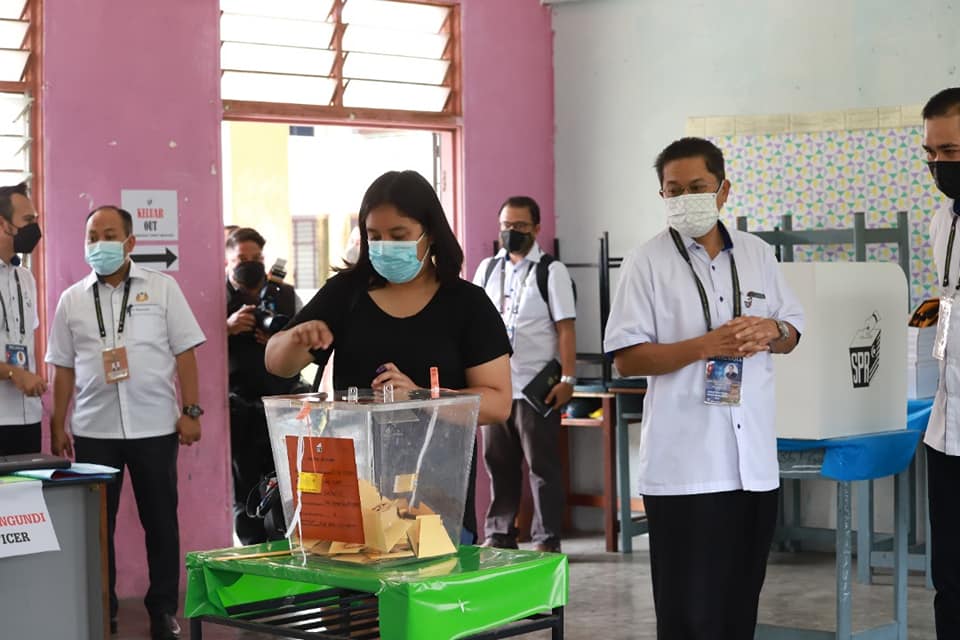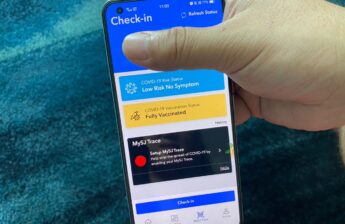Health issues are unlikely to feature strongly in the 15th general election, despite multiple long-standing institutional and personal health problems in Malaysia, such as the non-communicable disease (NCD) and ageing crises.
The apathy towards health issues could be seen in both the Budget 2023 tabled by caretaker Prime Minister Ismail Sabri Yaakob’s government (seen as a GE15 election manifesto, given that Parliament was dissolved yesterday before MPs could debate and pass it) and Pakatan Harapan’s (PH) shadow Budget 2023.
While Ismail Sabri’s government gave an impressive 11.5 per cent raise to the Ministry of Health’s (MOH) budget to RM36.1 billion from RM32.4 billion, consultant paediatrician Dr Musa Mohd Nordin noted that this increase paralleled the 12.1 per cent hike to the total federal budget.
When rationalised against Malaysia’s gross domestic product (GDP), Dr Musa pointed out that the government’s health budget remained at 1.98 per cent of the GDP, unchanged from the 2022 share.
Caretaker Health Minister Khairy Jamaluddin, in his previous efforts for long-term health care reform with a Health White Paper that he didn’t manage to table before the dissolution of Parliament, had touted increasing public health expenditure to 5 per cent of Malaysia’s GDP by 2030.
Ismail Sabri’s proposed 2023 budget also indicated MOH’s increased dependence on contract doctors, with an additional RM600 million allocated for contract staff emoluments while retaining the number of permanent posts in the ministry’s medical programme.
Galen Centre for Health and Social Policy chief executive Azrul Mohd Khalib described the 2023 health budget as “business as usual”, noting that Ismail Sabri’s government had failed to address health care financing.
PH’s shadow Budget 2023, similarly, omitted mention of reforming health care financing, despite proposing an increase of health care professionals in Malaysia’s “grossly underfunded” public health care system.
PH proposed a care economy to increase access to quality care for elderly people, but failed to explain in detail on how to finance care for incapacitated and older adults across the country, aside from suggesting government allocations from general taxation revenue.
In a recent interview with Astro Awani, Azrul explained that a social health insurance scheme in Malaysia could model after the United Kingdom, Taiwan, Singapore, Indonesia, South Korea, Australia, or New Zealand, where employees and employers would make payroll contributions – like the Employees Provident Fund (EPF) or Social Security Organisation (Socso) – into a certain fund earmarked for health care costs, such as for treatment or infrastructure.
“When we have more people contributing into this pool, we would be able to collect this pool of money to invest into developing health care. This would not replace existing allocation that the government already provides under the federal budget; it would complement,” Azrul said.
Even if political parties and election candidates are hesitant to include social health insurance in their GE15 election manifestos, they should propose some form of health care financing because Malaysia’s health care system has been unsustainable for decades.
Malaysia can only double annual public health spending to RM70 billion with some form of health care financing to complement government allocations from the increasingly squeezed general taxation pool, given that only 16.5 per cent of the Malaysian workforce were subject to individual income tax, as of 2020.
Those running for office in the general election should take note of CodeBlue’s recent (albeit small) poll among over 500 respondents that showed 72 per cent support for a mandatory social health insurance scheme funded by payroll contributions from employees and employers.
Besides health care financing, health advocates and associations representing medical practitioners and patients should actively participate in the GE15 campaign to pressure political parties and election candidates to take up other health issues.
One example would be the tobacco generational end game (GEG). The first version of the Control of Tobacco Product and Smoking Bill 2022 tabled by Khairy last July was extremely problematic, sparking heated opposition from civil rights activists and MPs across the aisle due to excessive enforcement powers and constitutional issues with the bill.
Khairy’s failure to table a revised version of the tobacco bill in Parliament last Thursday for debate – after a review by a new parliamentary special select committee (PSSC) that he headed – indicates that Ismail Sabri’s government was not in favour of the proposed legislation. Whether or not PH supported the tobacco bill was irrelevant, as the bill would likely have passed with a voice vote if the then-government had supported a generational ban on tobacco and vape.
Hence, anti-tobacco activists should make the GEG an election issue and openly endorse any election candidates, regardless of party, who support creating a smoke-free generation in Malaysia.
Other issues that medical experts, health advocates, and patient groups can highlight in the election campaign are chronic illness, accessible and affordable care for an ageing population, pandemic preparedness, sexual and reproductive health like access to safe abortions, and ending Malaysia’s HIV/AIDS epidemic by 2030.
Diabetes and cancer are key chronic conditions that should be addressed by GE15 election candidates.
A report by MOH and the World Health Organization (WHO) revealed that annual direct health care costs from diabetes in Malaysia total about RM4.4 billion, 227 per cent higher than cancer (RM1.3 billion) and 11 per cent higher than cardiovascular disease (RM3.9 billion). Azrul previously suggested reducing subsidisation for diabetic treatments and introducing co-payments instead of up to 30 per cent of the actual cost.
Sew Boon Lui, a breast cancer patient from Kuching, Sarawak, revealed that her cancer treatment cost so far in the last five years amounted to nearly RM255,000, excluding travel costs to Kuala Lumpur for treatment. She has suggested solutions for access to newer cancer drugs, such as social health insurance, waivers to cancer patients who pay income tax, and a cancer drug fund.
GE15 cannot be business as usual. Corruption is not the only issue plaguing the country. Access to affordable and quality health care for everyone – from birth to death – is a crucial policy issue that must be addressed in the election.

Boo Su-Lyn is CodeBlue editor-in-chief. She is a libertarian, or classical liberal, who believes in minimal state intervention in the economy and socio-political issues.








